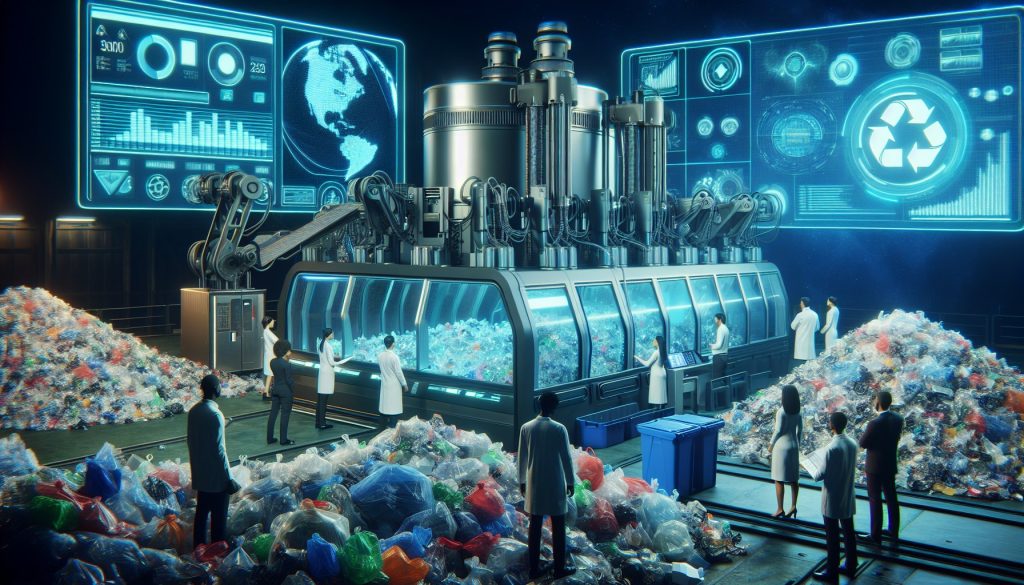Contents
Waste management has long been a pressing global challenge, characterized by overflowing landfills and escalating environmental concerns. However, amidst these difficulties, cutting-edge technology in recycling is surfacing. Victoria Gerrard La Crosse WI sheds light on this transformative development, highlighting the exciting world of technological advancements revolutionizing recycling practices.
In this article, we will delve into the intricacies of these advancements, exploring how they make waste management more sustainable, efficient, and environmentally conscious. This matters immensely because our future embodies the aspirations of the upcoming generation, brimming with hope and promise.
Smart Bins And IoT Integration
The traditional waste bin has undergone a significant makeover, thanks to the advent of smart bins and the Internet of Things (IoT). These bins are equipped with sensors that can detect the fill level and type of waste deposited. When the bin reaches capacity, it sends an alert to waste management authorities, streamlining the collection process.
Victoria Gerrard La Crosse WI points out this development is amazing because it optimizes collection routes. More importantly, this tool reduces unnecessary pickups, ultimately saving fuel and minimizing the carbon footprint.
RFID Technology For Efficient Sorting
Radio-frequency identification (RFID) technology has revolutionized recycling centers by significantly enhancing the sorting process. In this innovative system, RFID tags are securely attached to various items, creating a seamless flow of information as they effortlessly move through the recycling facility. Advanced scanners strategically positioned along the facility’s path read the tags, swiftly identifying the precise material composition of each item.
This cutting-edge automation enables highly efficient and accurate sorting, making the entire process even faster and more precise. With the integration of RFID technology, recycling centers can achieve unprecedented material recovery rates, ensuring that each type of material is meticulously processed.
Advanced Sorting Robots
Integrating robotics into waste management has ushered in a new era of efficiency. Advanced sorting robots are designed to recognize and separate different materials with incredible precision. These robots use artificial intelligence (AI) algorithms to analyze and categorize items on conveyor belts, ensuring that materials are sorted accurately.
Victoria Gerrard La Crosse says implementing advanced technologies in recycling processes has led to a substantial decrease in human error. It has also resulted in a significant boost in the speed and efficiency of recyclables processing. This breakthrough has revolutionized the industry, paving the way for a more sustainable and environmentally friendly future.
Blockchain For Transparent Recycling
Blockchain technology, known for its secure and transparent nature, is being applied to the recycling industry. Blockchain ensures transparency and accountability by creating a tamper-proof record of every step in the recycling process, from collection to processing and distribution.
This builds trust between consumers and recycling facilities and helps track the environmental impact of recycling initiatives. Blockchain can incentivize responsible recycling practices by providing a verifiable record of each item’s journey through the recycling chain.
3D Printing From Recycled Materials
Combining 3D printing and recycled materials is a game-changer in waste management. Innovators are developing 3D printing technologies using recycled plastics and other materials, turning waste into valuable resources.
Victoria Gerrard La Crosse says this innovation reduces the demand for virgin materials and opens up new avenues for creativity and sustainability. Imagine a future where your new furniture or household items are crafted from recycled materials through 3D printing.
Mobile Apps For Citizen Engagement
Technology is transforming the backend processes of waste management and engaging citizens in the recycling journey. Mobile apps empower individuals to make informed decisions about their waste disposal habits.
These apps provide information on the correct recycling guidelines and updated collection schedules. They even offer rewards for responsible disposal. By fostering a sense of responsibility among citizens, these apps contribute to the overall success of waste management initiatives.
Waste-To-Energy Technologies
Waste-to-energy technologies are gaining momentum as a sustainable solution to manage non-recyclable waste. Advanced incineration and gasification processes can convert waste into energy, reducing the dependence on fossil fuels. And that’s a big improvement, considering some fossil fuels are finite and increase carbon footprints.
This groundbreaking technological innovation significantly contributes to generating clean and sustainable energy while minimizing the adverse environmental impact of landfilling. By harnessing the untapped energy potential of waste, we are paving the way toward a circular economy where even non-recyclable materials can be repurposed and utilized to their fullest extent, fostering a more sustainable and resource-efficient future.
Conclusion
Technology fused with waste management transforms the recycling landscape, making it more efficient, transparent, and sustainable. From smart bins to blockchain and 3D printing, each innovation plays a crucial role in revolutionizing how we handle and repurpose our waste. As we continue to embrace these technological advancements, the hope is that they will not only enhance waste management but also inspire a global shift toward a more environmentally conscious and responsible society. The future of recycling is intertwined with the ever-evolving world of technology, promising a greener and cleaner planet for generations to come.


